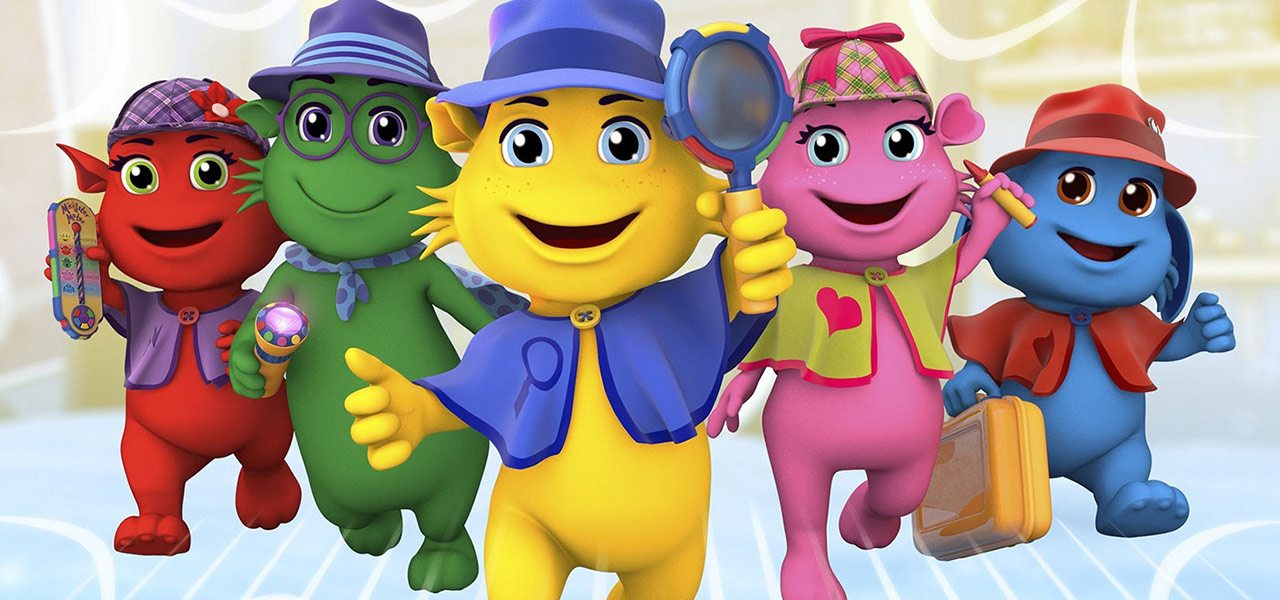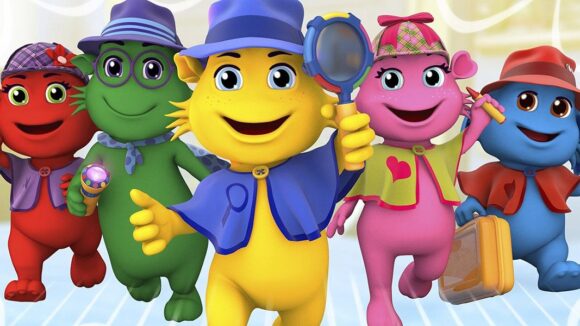

‘Inside Out’ Infringement Case Dismissed In U.S. Court
The Walt Disney Company and Pixar Animation Studios emerged victorious in court last week, prevailing against child development specialist Denise Daniels in a lawsuit claiming that the concept for Inside Out was lifted from her creation.
As Cartoon Brew previously reported, Daniels filed suit on June 17, 2017, alleging Pixar used her project, The Moodsters, described by the Court as “a cartoon world populated by characters that embody individual emotions,” to create their Oscar-winning animated hit, Inside Out.
In his decision last week, judge Philip Gutierrez of the United States District Court based in Los Angeles dismissed Daniels’ lawsuit, though Daniels may amend her complaint to overcome the deficiencies the Court saw in her claim.
Daniels, co-founder of the defunct National Childhood Grief Institute, has helped children cope with grief after traumas such as the Columbine killings and Hurricane Katrina. She developed The Moodsters, with color-coded, anthropomorphic characters representing different emotions, as a learning tool for children to better understand their own emotions. In 2005, Daniels registered a bible for The Moodsters, at the time contemplated as a tv show for preschoolers, with the U.S. Copyright Office. In 2007, she posted the pilot episode of The Moodsters on Youtube.
Daniels claims to have repeatedly pitched her project to executives and creative talent at Disney between 2006 and 2009, including an alleged conversation with future Inside Out director Pete Docter. The Court noted that Daniels did not describe with much detail the substance of what she pitched, nor to whom she pitched the project, and how. In 2010, Pixar began developing Inside Out.
In her complaint, which she already amended once, Daniels claims that Disney and Pixar created what’s known as an implied-in-fact contract with her when they used The Moodsters to create Inside Out – the theory being, because Disney knew Daniels only pitched her materials to Disney with the expectation that they would pay her if they used her materials, then once they used her materials they owed her payment. Daniels also made five copyright claims – not in The Moodsters itself, but in four characters, and in the ensemble as a whole.
Last Wednesday, January 31, the Court determined that each of her claims failed.
Firstly, Daniels copyright registering of The Moodsters bible stated that The Moodsters had been published in 2005, and further, by putting the pilot episode on Youtube in 2007, Daniels had made her materials publicly available. Neither of those helped her case, since Court precedent has established that the use of publicly available materials cannot be the basis for an implied-in-fact contract. The reasoning is that no evidence suggests Disney received any benefit when Daniels pitched her project to them that they could not have obtained by reviewing what was already publicly available. It would be hard justice to impose a contract on them when they gained so little.
Daniels’ copyright claims fared no better. Quoting legal precedent, the Court noted that mere characters are not usually conferred with copyright protection. To get such protection, characters have to (1) have “physical as well as conceptual qualities,” (2) “be ‘sufficiently delineated’ to be recognizable as the same character whenever it appears, and (3) be ‘especially distinctive’ and ‘contain some unique elements of expression.’”
The Court found that only the second and third factors were at issue here. The Court noted that what is meant by the second factor are characters such as Sherlock Holmes, Tarzan, Superman, and James Bond – characters “instantly recognizable wherever they appear.” Instead, here, the characters in The Moodsters were more generic, and their names had changed in different iterations of the project. Further, the bible and the pilot episode had hardly been seen, with the pilot episode gathering only 1,400 viewers. They hardly qualify as recognizable wherever they appear.
In determining whether Daniels’ characters were “especially distinctive,” the Court noted that judges review “visual depictions, name, dialogue, relationships with other characters, actions and conduct, personality traits, and written descriptions.”
Here, the Court found that the characters in The Moodsters were lightly sketched with not-especially distinctive traits. The characters themselves, the Court found, were not protectable by copyright.
The Court quickly dispatched with the “ensemble copyright” claim, noting that Daniels offered no evidence to suggest that the ensemble of her characters was any more distinctive or recognizable than the individual characters themselves. Because the individual characters were not protectable, neither is the ensemble.
The Court gave Daniels until March 1 to amend her complaint with respect to the copyright claims. She will need to add evidence in her amended complaint to show that her characters are instantly recognizable wherever they go and sufficiently distinctive. The implied-in-fact contract issue, however, is dead, unless Daniels appeals.

.png)